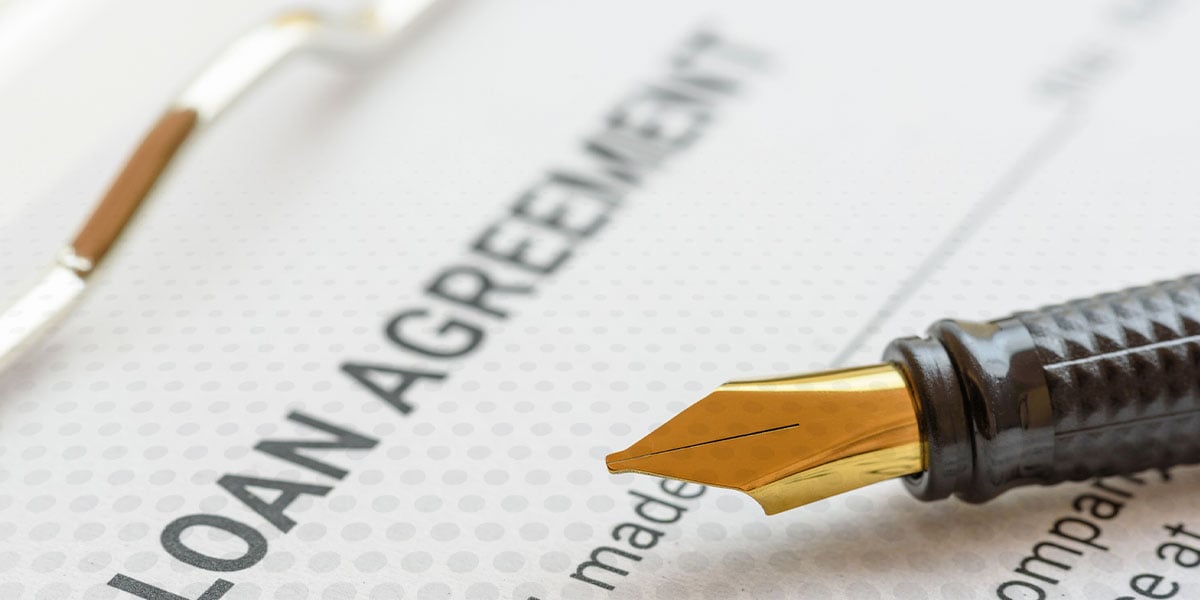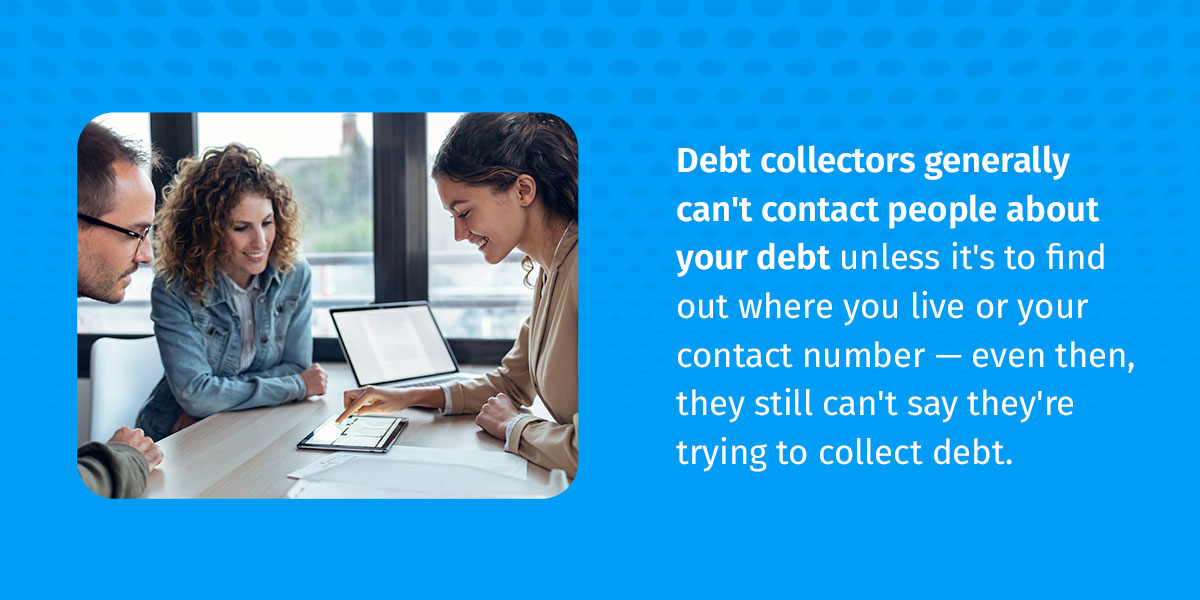- New Customer Inquiries (866) 551-4684
- Customer Service (214) 387-8068
- Make A Payment (866) 558-3328
- Client Portal
- Consumer Support

A debt collector is a person or a company that collects outstanding debts for others. While there are many legitimate and ethical debt collectors, fake debt collectors try to scam people into paying them money. Legitimate collectors are generally professional and can verify the company they work for, the creditor to which you owe the money and the debt amount.
Scammers, on the other hand, will withhold information from you while pressuring you into making a payment. In this article, we’ll look at how to go about spotting fake debt collectors and the steps to protect yourself from debt collection scams.
A debt collection scam happens when a scammer contacts you claiming you owe a debt that is fake, already paid, or beyond the statute of limitations. Scam debt collector phone calls often involve deceptive and intimidating tactics, including aggressive threats and demands for either immediate payment or personal information. Debt collection scams are on the rise, and consumers need to recognize the warning signs of collections fraud.
You can tell the difference between a scammer and a licensed debt collector by asking the right questions and requesting important information.
You can tell if a debt collector is legitimate by first asking for their name, company name, street address and telephone number when they first contact you. If the state you reside in requires debt collectors to have a license, ask them for their professional license. You can verify the legitimacy of the information on your state’s database to ensure that the debt collector has the legal right to collect debt. Make sure to check that the company that they work for is a legitimate one, too.
There are a few options available to you to check how legitimate the debtor is:
Ask for their debt validation notice if they aren’t registered in your state. The Fair Debt Collection Practices Act (FDCPA) governs debt collection laws and regulations and requires that a debt collector provide you with the relevant information about your debt within five days of contacting you. With this information, you can confirm whether or not the debt is yours. You can then go about disputing it if it is not yours. The validation notice should include the following information:
If you find that the debt is inaccurate or illegitimate, you can send a debt validation letter requesting the collector to provide clear evidence of the owed amount. You must send the letter within 30 days of receiving the notice.
There are many legitimate debt collectors, but occasionally, people become the targets of scammers who try to get them to pay debts that aren’t theirs. We have a list of a few red flags for scam debt collectors to look out for:

Once a collector contacts you, you’ll need to take steps to settle the debt. You may feel overwhelmed and not sure where to start. First, let’s look at the best way to respond when a debt collector contacts you.
When you suspect that a debt collector is illegitimate, you need to take immediate steps to protect your information and identity:
If a debt collector is trying to scam you, it’s important that you report them immediately to protect yourself. There are a few ways you can go about reporting scammers:
When you are dealing with a debt collector, make sure to keep detailed records. Take note of the time and date of the calls and save emails, texts, letters and any other correspondence you have with the collection agency. If the law permits you to in your state, you can even record phone calls — the more information you have, the better.
You can visit the FTC website to report the scammer. You’ll start by filing a report that includes as much detail as possible — anything you share with the FTC can be helpful. If you have already paid money, include how much you paid and when. Make sure to share details about the illegitimate debt collector, too.
Once you’ve filed your report, the FTC will give you the next steps to protect yourself and recover from the incident. If you paid money, they will send you steps on how to recover the money. If someone from the FTC or a government agency asks you to pay a fee to recover your money, that is a scam.
Many states have debt collection laws that differ from federal laws. You can locate your state attorney general and file a complaint to understand what action you can take. When you file a complaint with the state attorney general, they use the information in the report to identify trends for enforcement actions — it does not necessarily mean they will legally represent you.
You can submit a complaint to the CFPB, and they will work to get you a response from the company you are complaining about. You can submit your complaint either online or via the phone. Make sure to explain what happened, what you think would be a fair outcome and what you have done to resolve the issue. Provide all the necessary information, as you usually cannot file a second complaint about the same issue. Include the company name, dates and any related amounts.
Once you submit the complaint, they will work with the company to resolve it. If the CFPB feels that another government agency can better handle the complaint, they may forward it to the relative agency. You can also track the status of your complaint online.
If a debt collector contacts you, there are ways you can tell whether they are a real professional. You can ascertain whether it is a scam by requesting the right information. They should be able to give you information about themselves and their collection agency.
A legitimate debt collector should be able to provide you with the following information:
If you are worried about the legitimacy of the collection agency, you can protect your personal information by doing the following:
A scammer may even send you a debt collection letter to try to get you to make payments. If you examine the letter closely, there are some signs of debt collection scams:
If a debt collector does contact you, stay calm and take all the necessary steps to verify that it is a legitimate company. Remember, you can’t go to jail for owing money, but it can be challenging to recover your money or rectify the damage of a scam. If the collector uses dubious methods to get you to pay, cease all contact and report them. You can also contact the creditor directly to double-check if the debt is, in fact, yours.
At Southwest Recovery Services, we provide a range of debt recovery services based on professional, legal and ethical practices. If you need help recovering your debt, contact our experts today!


We make it fast and easy to refer past due and delinquent accounts to our professional recovery agents. You decide the range on what you will accept on each case, and you ONLY pay a percentage of what we actually collect to resolve the case. Ready to get started, or want to learn more? Fill out this form and a dedicate account manager will call you to get started.